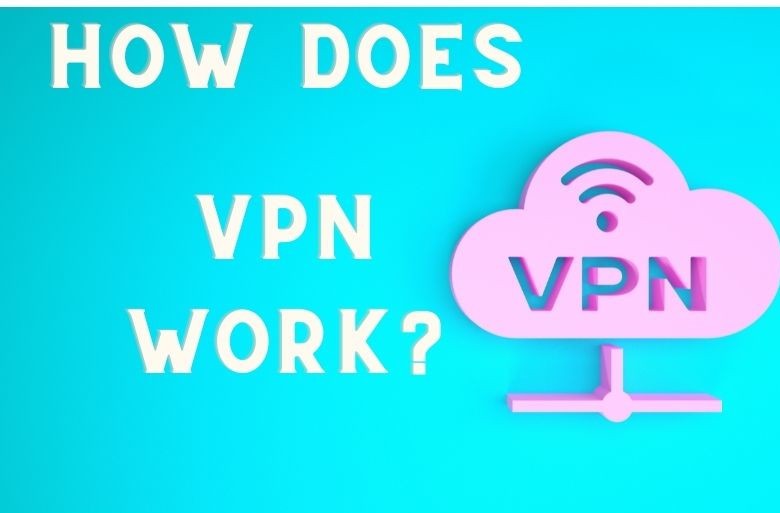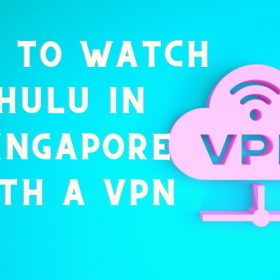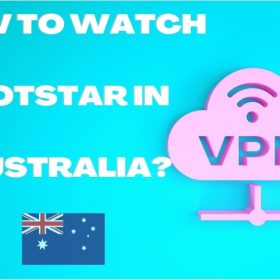Last Updated on May 10, 2024 by Walter
In order to learn How Does a VPN Work we must learn the following. Encryption refers to the process of changing the text in a normal format to a file. secret code. Only someone who can decipher it will understand it.
Encryption is used to protect your messages from being read by unwelcome people.
VPNs use encryption for your browsing history is hidden while you are traveling between your device and the VPN server.
A VPN will prevent ISPs, governments, and WiFi administrators from spying on your connection.
How does it work? What does a VPN do to encrypt and secure your data?
We will continue to examine the components and processes of VPN encryption in the remainder of this section. Let's start with encryption.
Table of Contents
Encryption ciphers
VPNs use file encryption to transform your online activity into unintelligible codes.encryption encryption.
An encryption is simply an algorithm, that is, a set or rules, that encrypts or decrypts data.
EXAMPLE
An extremely simple encryption method can be used to encrypt data by replacing all letters in the message with the letter that follows it in alphabetical order. TanPrivacyIt would be possibleoqhuzbx.
Encryptions can be paired with a particular key length. The longer the key is, the more secure encryption. AES-encryption is an example.256AES-256 is safer than AES-3128.
These are the most popular ciphers used in VPN services:
1 Advanced encryption standard (AES).
Advanced Encryption Standard (AES), is one of the strongest encryptions. This is the AES. Gold standard is widely used in the VPN industry as a means of encrypting online data.
AES was developed by the U.S. National Institute of Standards and Technology in 2001. It is also sometimes known as the Rijndael algorithms. Because of its larger block sizes, AES can handle larger files than other encryptions like Blowfish.
AES can be used in 128-bit or 256-bit keys. Although AES-128 can still be considered secure, it is well-known that organizations such as the NSA are constantly trying to compromise encryption standards. AES-256 is therefore preferred, as it offers greater protection.
You can read more about “Military level“o” Banking AES256 is the most common encryption used on the website for VPN services. AES256 encryption is used by the U.S government to protect sensitive data. This is something we look for when reviewing VPNs.
2 Puffed fish
Blowfish was created by Bruce Schneier, an American cryptograph in 1993. Blowfish was the default encryption for most VPN connections. However, it has been largely replaced with AES256.
Blowfish is typically used with a key length of 128 bits. However, it can be as long as 448 bits.
Blowfish has some flaws. Blowfish is vulnerable to a cryptographic attack called a “birthday attack”. This is why Blowfish should not be used in place of AES-256.
3 ChaCha20
ChaCha20, a relatively new VPN encryption tool, was posted in 2008 by Daniel Bernstein. It is still quite popular and compatible with WireGuard, despite this.
ChaCha20, like AES, has a key length that is 256 bits. This makes it very secure. ChaCha20 may also be three times faster than AES, according to reports.
ChaCha20 has no known vulnerabilities and is a welcome alternative for AES. In the near future, encryption technologies will face the challenge of quantum computing.
4 Camellia
Camellia is a cipher that is very similar to AES, both in terms of speed and security. It is thought that even with the smallest key length (128 bits), it would be impossible to break it using brute force attacks given current technology. Camelia's encryption is not vulnerable to successful attacks.
Camellia is different from AES because it isn't certified by NIST (the American organization that created AES).
Although encryption is possible without being associated with the U.S. government is a valid argument, Camelia isn't available in VPN software and has not been thoroughly tested as AES.
SUMMARY A VPN shouldn't use less than AES256 encryption to encrypt data. ChaCha20 or Camellia are safer alternatives to VPNs, but you should have the option of choosing AES-256 encryption from your VPN.
VPN protocols
VPN protocols are the processes and rules that the device uses to establish secure connections with the VPN server.
The VPN protocol, in other words, determines How the VPN tunnel is made while using encryption encrypt data this tunnel is for you to flow through.
A VPN can have different speeds and capabilities depending on which protocol is used. You can choose the protocol that you wish to use in most services' application settings.
Although there are many VPN protocols, not all of them are safe. Here's a brief description of the most popular:
- OpenVPN is Open-source, highly secure, and compatible with nearly all VPN compatible devices.
- WireGuard It is surprisingly fast and efficient but has not won the trust of all in the VPN industry because it is so recent.
- IKEv2/IPsec: This closed-source protocol is great for mobile VPN users but may have been compromised by the NSA.
- SoftEtherAlthough it does not support all VPN services, it is fast and secure and can be used to avoid censorship.
- L2TP/IPsec: Another slower protocol is suspected to be hacked by NSA.
- SSTPIt is capable of handling firewalls very well but is closed-source and could be vulnerable to man-in-the-middle attacks.
- PPTP Obsolete and unsafe should be avoided at any cost.
VPN handshakes
VPNs use protocols and encryption in addition to processes such as handshakes and hash authentications Protect and authenticate your connection
Handshakes are the first connection between two teams. It is a greeting that authenticates both parties and establishes communication rules.
During a VPN handshake, the VPN client (that's your device) establishes an initial link to the VPN server.
This connection allows the secure sharing of an encryption key between client and server. This key is used to encrypt or decrypt data at any point in the VPN tunnel during a browsing session.
VPN handshakes typically use the RSA (Rivest-Shamir-Adleman) algorithm. RSA is the foundation of Internet security for over 20 years.
Even though there is no evidence that RSA-1024 has been ruptured, it is considered a security threat due to the current processing power.
RSA-2048 is a safer alternative that has a very small computational delay. As such, VPN services are moving away from RSA-1024.
Rely on VPN services that use RSA-2048 and RSA-4096.
Although the handshake process is secure and works well, each session that is generated using the private key in the RSA handshake can still be decrypted. It is essentially a master key.
If the master key were ever compromised, it could be used for decrypting any secure session on this VPN server. An attacker could gain access to all data that flows through the VPN tunnel.
We recommend VPN services with Perfect Forward Secrecy to avoid this.
The perfect secret for forward planning
Perfect Forward Secrecy uses the Diffie-Hellman or Elliptic Curve Diffie-Hellman key exchange algorithm to generate temporary keys.
The encryption key is kept secret by Perfect Forward Secrecy.
Instead, the keys are generated by both the VPN client and server independently by using either the DH/ECDH algorithm.
Although it is a complex mathematical process, Perfect Forward Secrecy effectively eliminates the threat from a single private key, which if compromised could expose all secure sessions on the server.
The keys are only temporary. They will not be able to reveal the keys. A specific session is that simple.
It is important to note that RSA alone can't provide a perfect secret. DH and ECDH must both be implemented within the RSA encryption suite in order for it to be effective.
In fact, ECDH can be used alone (instead of RSA), to create a secure VPN handshake using Perfect Forward Secrecy. VPN services that only use DH are vulnerable to being compromised. This problem is not a problem if RSA is used.
The top three VPN protocols we recommend (OpenVPN WireGuard, IKEv2) are all capable of ensuring Perfect Forward Secrecy.
Hash authentication
To authenticate the integrity and security of client-server connections and transmitted data, secure hash (SHA), algorithms are used. These algorithms ensure that information is not altered during transit from the source to the destination.
SHAs are used to edit source data using what is called the hash function. An algorithm is used to execute the original source message. The result is a fixed-length character string that bears little resemblance with the original. This is called a “hash value”.
It is a one-way function. You cannot run a rehash to determine the original message using the hash value.
Because only one character can be changed from the input source data, the hash function will change the hash value completely.
The data from the server will be combined with the secret keys by a VPN client. This is done using a hash function that was agreed upon during the VPN hand-link.
The message will be deleted if the hash value generated from the client is different than the one in the message.
SHA hash authentication is not possible man-in-the-middle attacks are detected by the ability to detect any manipulation of valid certificates.
It is possible for hackers to impersonate legitimate VPN servers and trick you into connecting with an insecure one. Your activity could then be tracked.
We recommend VPN services to ensure your security. Use SHA-2 and higherSHA-1 has shown weaknesses that could compromise safety.









